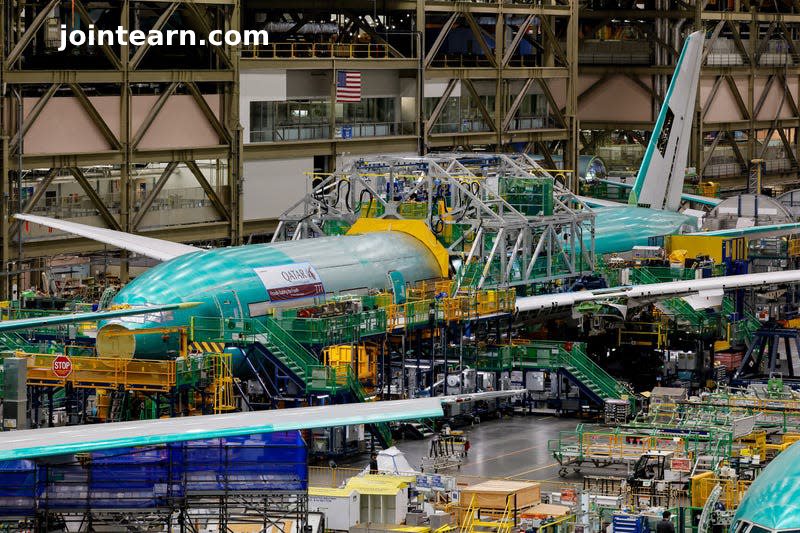U.S. durable goods orders surged by 9.2% in March, driven by a significant spike in demand for commercial aircraft. However, other sectors experienced more subdued activity, reflecting caution among businesses due to ongoing economic uncertainty exacerbated by trade tariffs.
According to the U.S. Census Bureau’s latest report, orders for durable goods—ranging from household appliances to long-lasting machinery—marked a notable increase after a slight downward revision of February’s 0.9% gain. Economists had projected a 2.0% increase in March following a previous 1.0% gain in February.
Impact of U.S.-China Trade War on Durable Goods Orders
The recent surge in durable goods orders comes amid ongoing tensions in the U.S.-China trade war. U.S. tariffs on Chinese imports, some of which have risen as high as 145%, have led to retaliatory measures from Beijing. President Trump has also imposed a 10% tariff on most trading partners and threatened additional duties on auto parts and other goods, including motor vehicles, steel, aluminum, and lumber.
While President Trump’s administration sees tariffs as a means to boost revenue and revitalize the U.S. manufacturing sector, critics warn that such tariffs could disrupt global supply chains that U.S. manufacturers heavily rely on.
Transportation Equipment Orders Lead March Surge
A major driver of the March durable goods order surge was a 27.0% increase in transportation equipment orders, which included a dramatic 139.0% rise in commercial aircraft orders. Boeing, one of the primary players in the commercial aircraft market, reported a sharp jump in orders—from just 13 in February to 192 in March.
However, the aerospace sector faces challenges as China has instructed its airlines to halt Boeing aircraft deliveries. In response, some airline executives have stated they would defer aircraft deliveries to avoid paying tariffs, which could hinder Boeing’s recovery from last year’s prolonged strike.
Despite these challenges, Boeing CEO Kelly Ortberg expressed confidence that the company had successfully mitigated the broader impact of tariffs, with the ability to reroute jets to other airlines seeking additional planes.
Core Capital Goods Orders Remain Flat in March
Orders for non-defense capital goods excluding aircraft—an important indicator of business investment—rose slightly by 0.1% in March, following a downward revision of a 0.3% decline in February. Shipments of core capital goods increased by 0.3%, following a 0.7% gain in the previous month. These core capital goods shipments are crucial for calculating business spending in GDP reports.
The latest data points to a softening in business investment, with analysts predicting growth estimates for the first quarter of 2025 to be well below 0.5%, indicating that the economy may face a slowdown or even contraction. This comes after a 2.4% growth rate in the fourth quarter of 2024.












